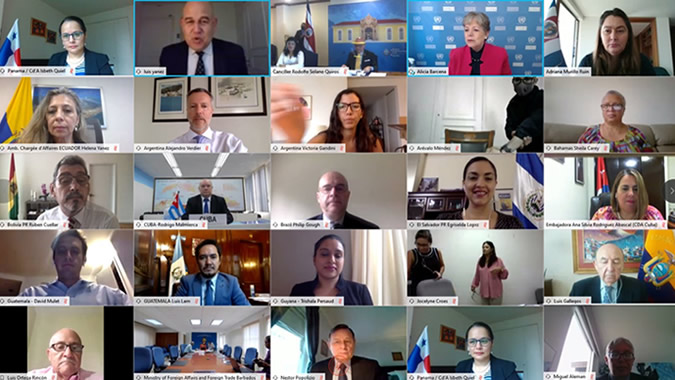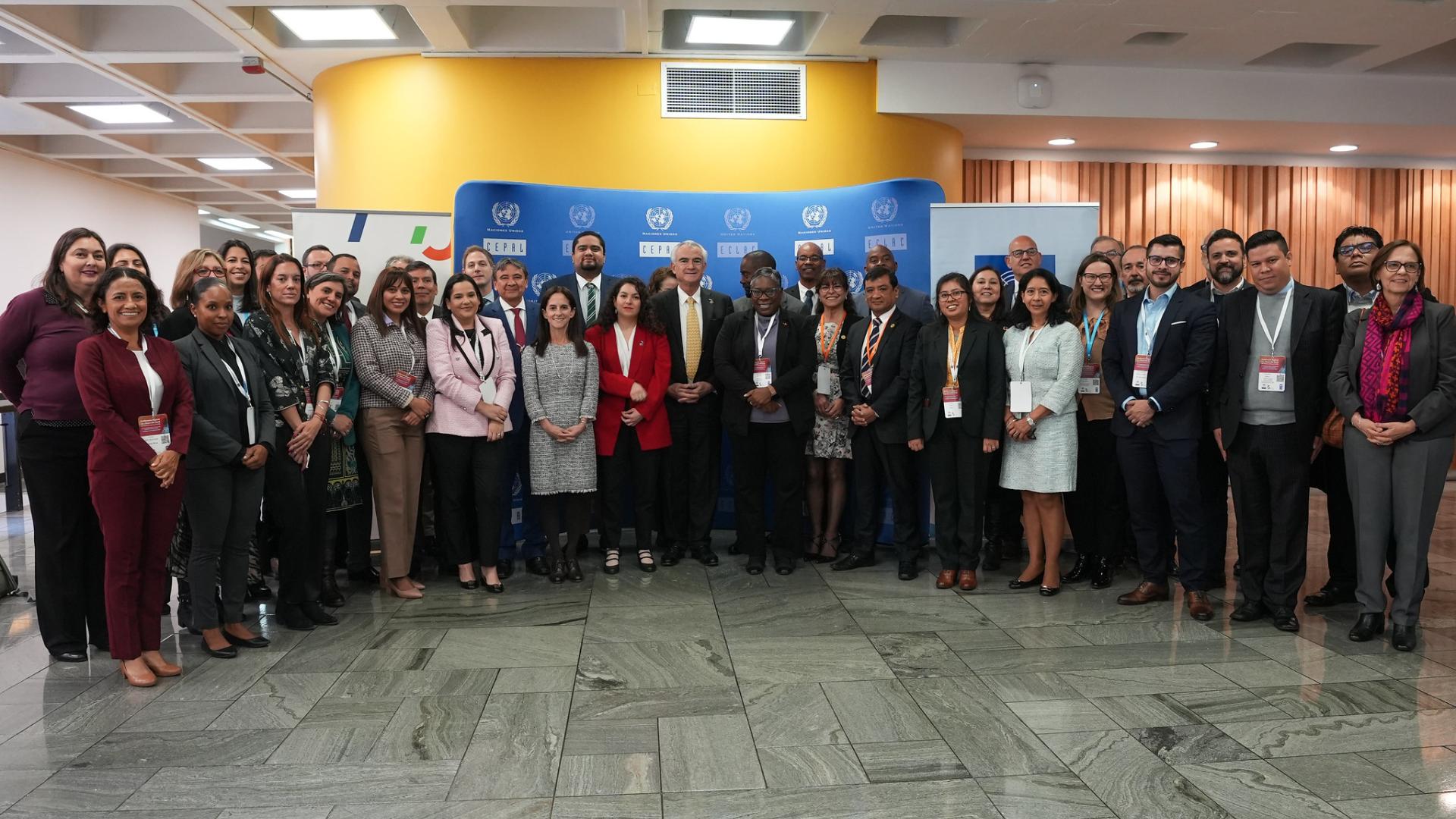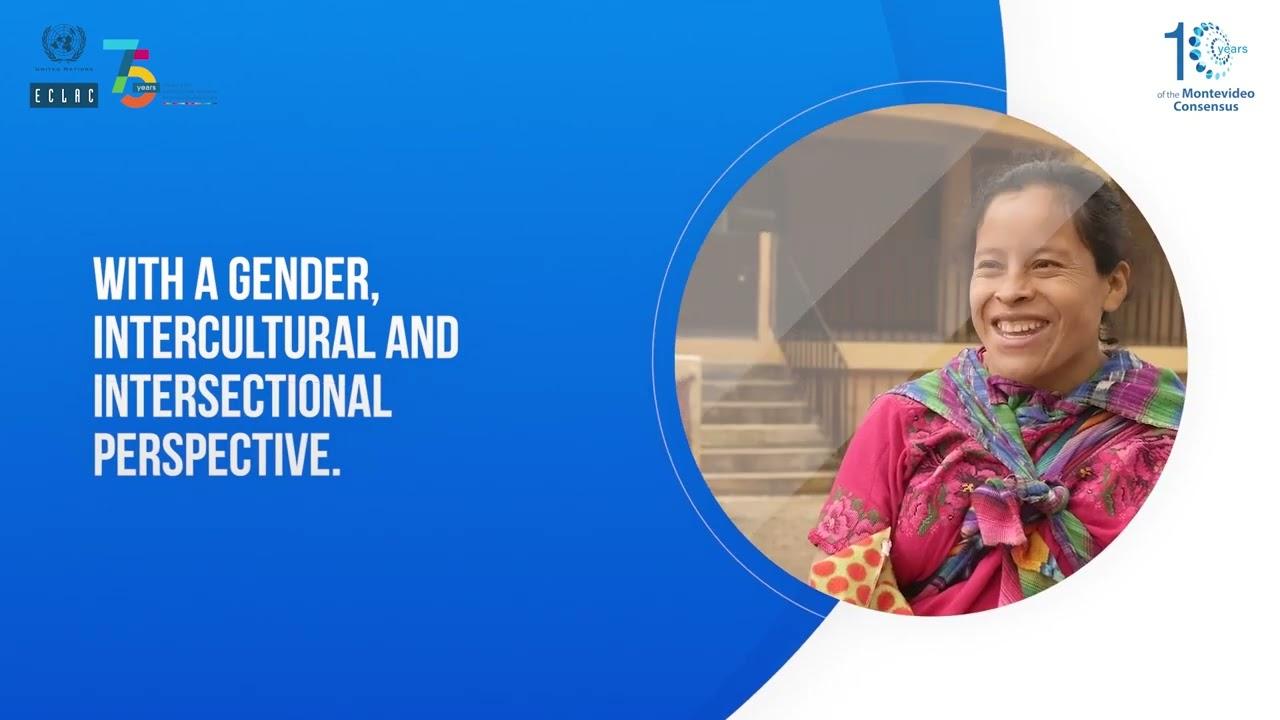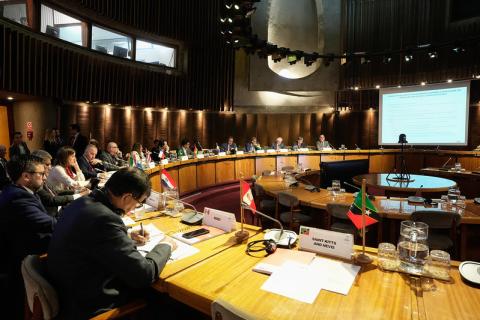Briefing note
Representatives of Latin American and Caribbean countries urged for a paradigm shift in international financing that would allow for immediate responses to the effects of the coronavirus (COVID-19) pandemic to be provided and for sustainable development to be achieved in the region, during today’s virtual meeting of the thirty-fifth session of the Committee of the Whole of the Economic Commission for Latin America and the Caribbean (ECLAC).
On this occasion, Cuba handed the Presidency Pro Tempore over to Costa Rica, which will hold this position for the next two years.
The meeting – in which 37 of ECLAC’s member countries participated along with 6 associate members – was inaugurated by Rodrigo Malmierca, the Minister of Foreign Trade and Foreign Investment of Cuba, and Alicia Bárcena, ECLAC’s Executive Secretary, who described the economic and social panorama in Latin America and the Caribbean and explained the Commission’s priorities for confronting the region’s most pressing challenges in the face of the COVID-19 pandemic.
In his remarks, Minister Malmierca gave an account of the activities led by Cuba in the last two years while it served as Chair of ECLAC, and he highlighted his country’s commitment to a renewed multilateralism and the defense of the principles of international law enshrined in the United Nations Charter.
“The central value of our presidency was to further, through frank and open dialogue, the goals of putting an end to poverty and achieving zero hunger, where each person would have access to universal health services and each child would have access to an education system that contributes to closing the profound existing gaps that entrench inequality and foster a culture of privilege,” Rodrigo Malmierca stated.
Alicia Bárcena, meanwhile, stressed the importance of cooperation and the role of International Financial Institutions for the region’s post COVID-19 recovery. She added that financing for development in the era of the pandemic and beyond will necessitate collective action.
“More must be done, both in terms of scope and magnitude, to overcome this systemic crisis and ensure a recovery in line with the Sustainable Development Goals (SDGs),” ECLAC’s Executive Secretary affirmed.
She also emphasized that promoting equality is critical for controlling the pandemic and ensuring a sustainable and green economic recovery, and she underscored that to build back better, expansive fiscal policies will be needed, maintaining fiscal stimulus and avoiding austerity measures. More progressive and efficient taxation systems are also needed to eliminate evasion along with new fiscal and social compacts, she expressed.
ECLAC’s highest authority sustained that regional cooperation is more urgent than ever, and she stressed the need to provide public goods to society.
“We are at a civilizing crossroads that demands that we renovate our institutions. We have to create a global social compact; it will be necessary to revamp our development model, not losing the links to the 2030 Agenda and building more resilient societies,” she indicated.
In addition, the senior United Nations official highlighted the role of Cuba as Chair of ECLAC and welcomed Costa Rica, which will organize the thirty-eighth session of ECLAC, scheduled to take place on October 26-28, 2020 via virtual means.
“This will be a historic meeting in which we hope to endorse the importance of multilateralism, cooperation and mutual understanding to overcome together this tragedy that is hitting us relentlessly and to once again stress the urgency of a sustainable transformation, with equality at its center, for a better future in which life is truly worth living for millions of our compatriots,” Bárcena stated.
The Minister of Foreign Affairs and Worship of Costa Rica, Rodolfo Solano, in that country’s capacity as the new Chair of ECLAC, emphasized that given the magnitude of the pandemic’s effects in the region, “only by working together will we be able to ensure better results, leaving no one behind.”
He added that international cooperation and multilateral organizations must design new technical and financial instruments to support developing countries that are facing fiscal pressure.
In that sense, he pointed up the strategy of UN Secretary-General António Guterres who, along with the prime ministers of Jamaica and Canada, is calling for expanding funding instruments and analyzing the sustainability of the debt of countries such as those in the Caribbean that do not have the financial wherewithal to tap markets.
“This is a valuable opportunity that we must not let pass by to work on needed transformational changes, to make progress on our development agendas and to adequately confront the effects of the crisis,” he affirmed.
In the framework of the thirty-fifth session of ECLAC’s Committee of the Whole, country delegations participated in a roundtable discussion entitled International cooperation and the role of international financial institutions in the context of COVID-19 in Latin America and the Caribbean, which was introduced by Alicia Bárcena and Christian Salazar, Regional Director for Latin America and the Caribbean of the United Nations Development Coordination Office (DCO).
Also participating in the discussion were Maximiliano Reyes, Foreign Affairs Undersecretary for Latin America and the Caribbean of the government of Mexico; Jerome X. Walcott, Minister of Foreign Affairs and Foreign Trade of Barbados; Luis Gallegos Chiriboga, Minister of Foreign Affairs and Human Mobility of Ecuador; and Kamina Johnson Smith, Minister of Foreign Affairs and Foreign Trade of Jamaica.



